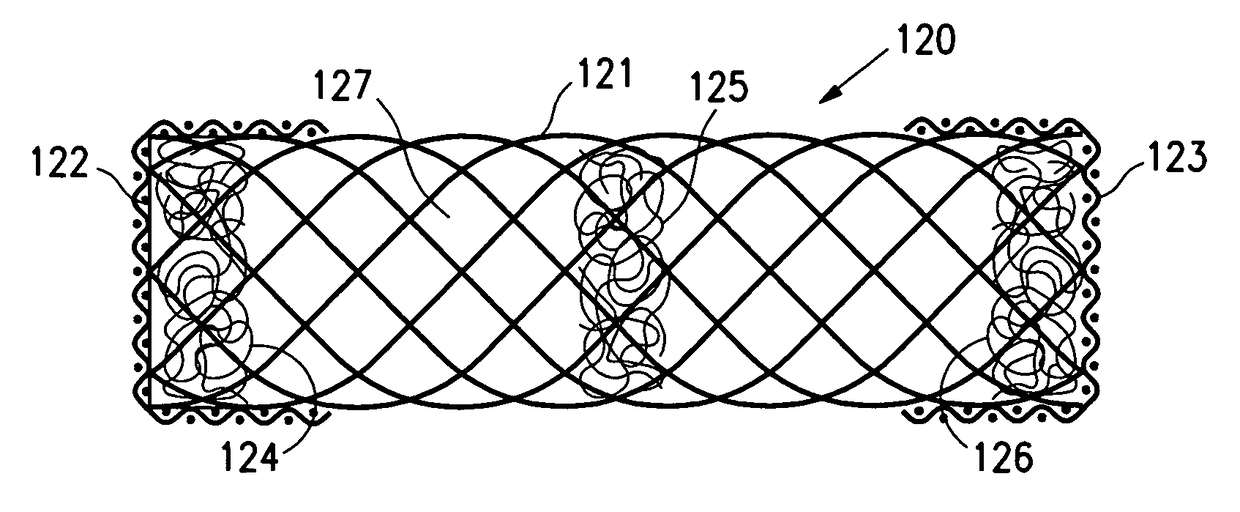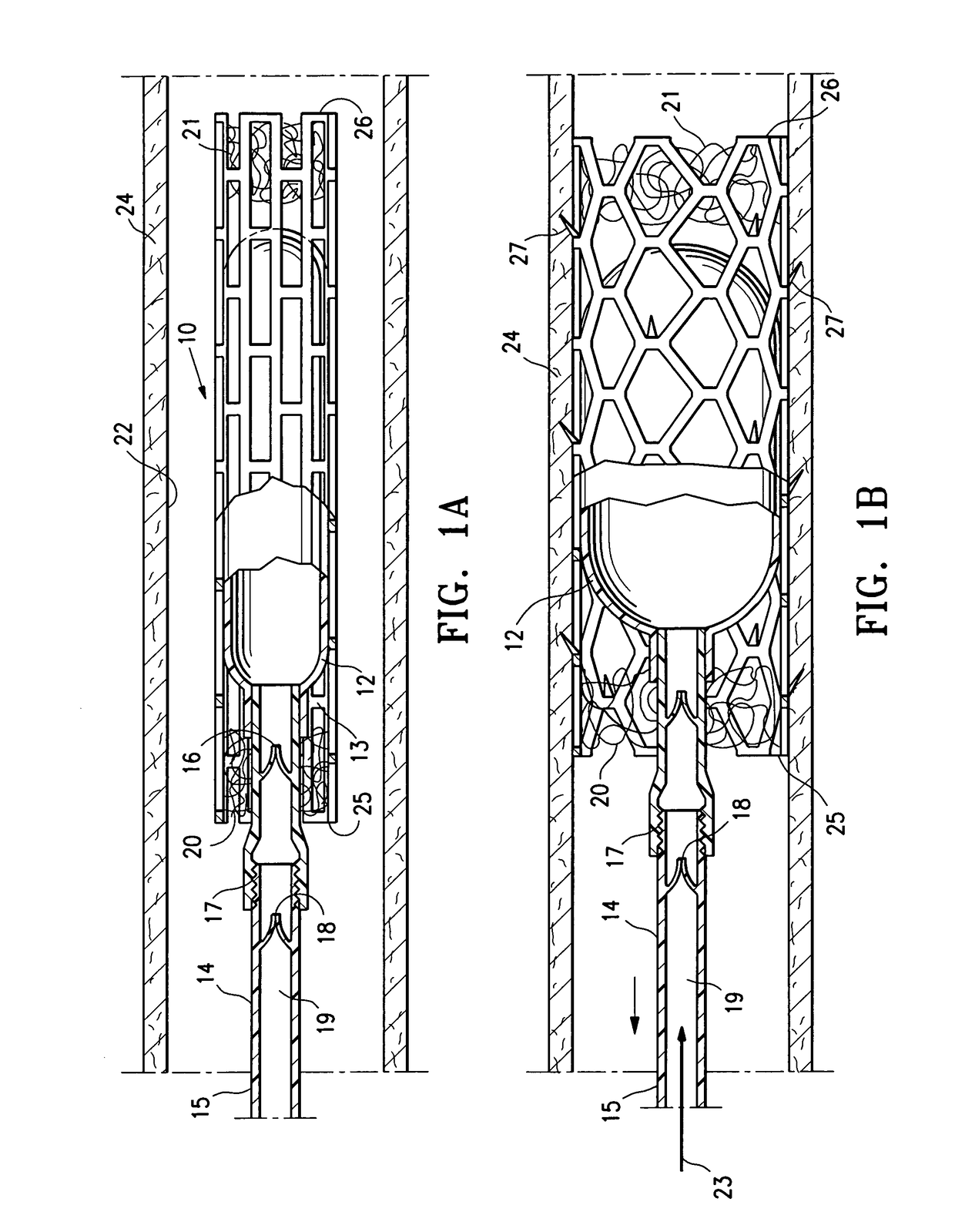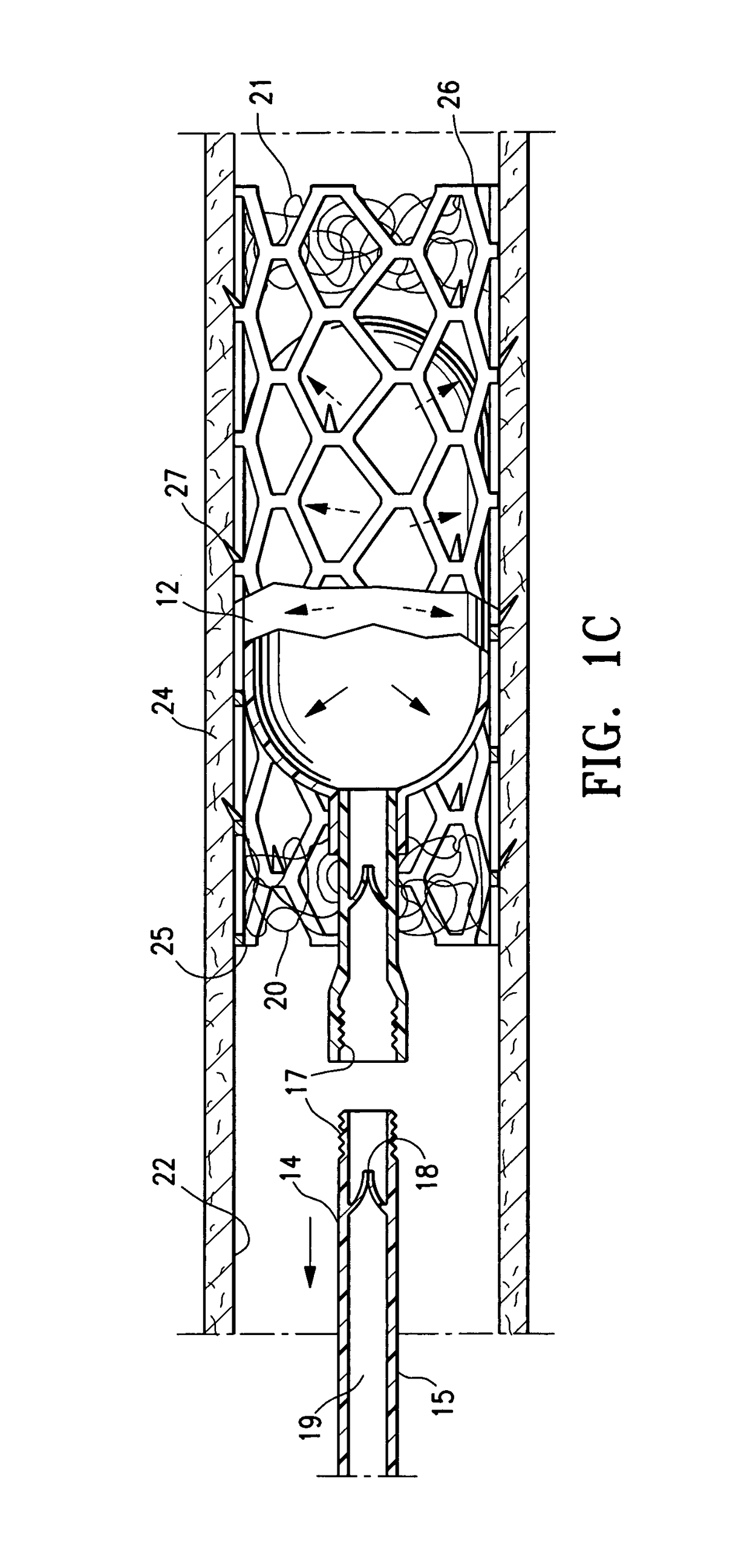Contraceptive with permeable and impermeable components
a technology of contraceptives and components, applied in the field of contraceptives, can solve the problems of high cost and attendant risks of surgery, drug strategies such as norplantTM, pill and pill, which rely on artificially controlling hormone levels, and condoms and diaphragms are subject to failure,
- Summary
- Abstract
- Description
- Claims
- Application Information
AI Technical Summary
Benefits of technology
Problems solved by technology
Method used
Image
Examples
Embodiment Construction
[0040]FIGS. 1A-1C depict an occluding device 10 embodying features of the invention which includes an expandable, stent-like occluding component 11 and an inflatable detachable balloon-like barrier component 12 contained within the inner lumen 13 of the stent-like occluding component. The detachable balloon-like barrier element 12 is releasably secured to the distal shaft portion 14 of delivery catheter 15. The inflatable balloon-like barrier 12 is located distal to a one-way valve 16 (e.g. a duck-billed valve as shown) which allows inflation fluid to be injected into the interior or the balloon like barrier, but prevents inflation fluid from flowing out of the balloon interior. A threaded connection 17 is provided between the balloon assembly and the distal shaft portion 14 of the delivery catheter 15 to detach the balloon-like barrier component 12 at the desired location. A second optional one-way valve 18 may be located proximal of the threaded connection 17 to act as a back flow...
PUM
 Login to View More
Login to View More Abstract
Description
Claims
Application Information
 Login to View More
Login to View More - R&D
- Intellectual Property
- Life Sciences
- Materials
- Tech Scout
- Unparalleled Data Quality
- Higher Quality Content
- 60% Fewer Hallucinations
Browse by: Latest US Patents, China's latest patents, Technical Efficacy Thesaurus, Application Domain, Technology Topic, Popular Technical Reports.
© 2025 PatSnap. All rights reserved.Legal|Privacy policy|Modern Slavery Act Transparency Statement|Sitemap|About US| Contact US: help@patsnap.com



